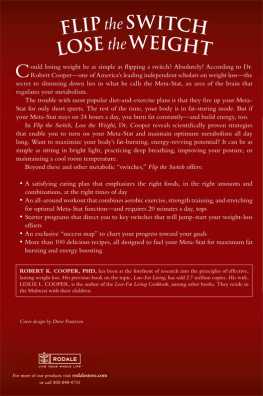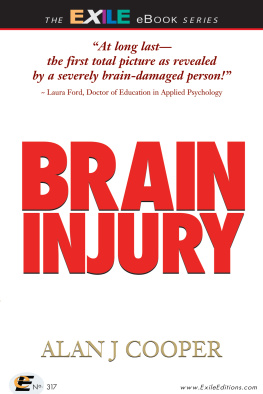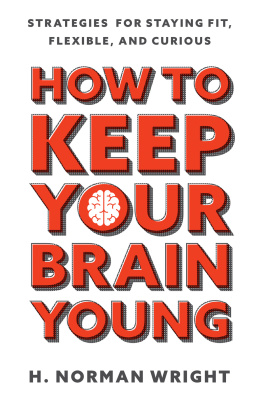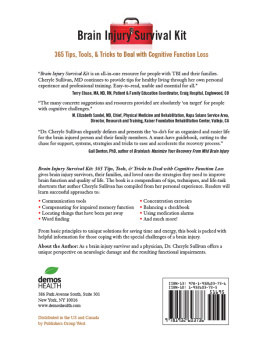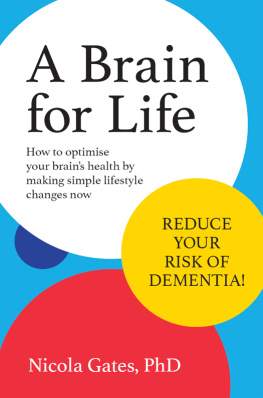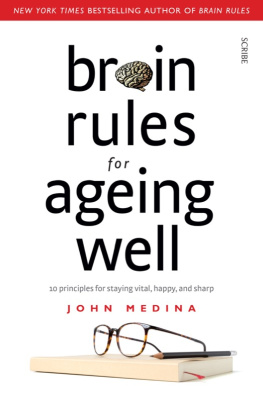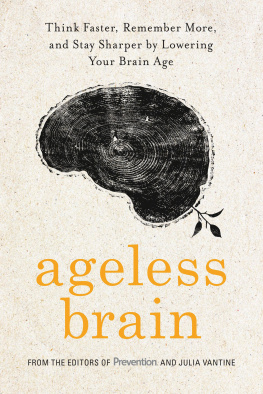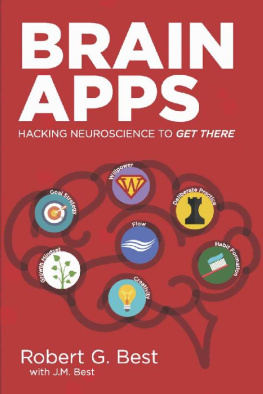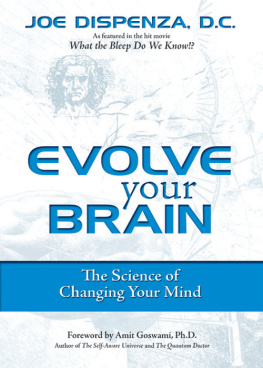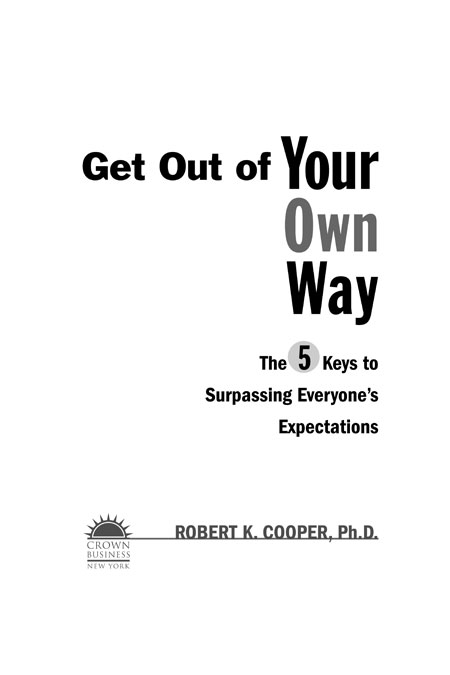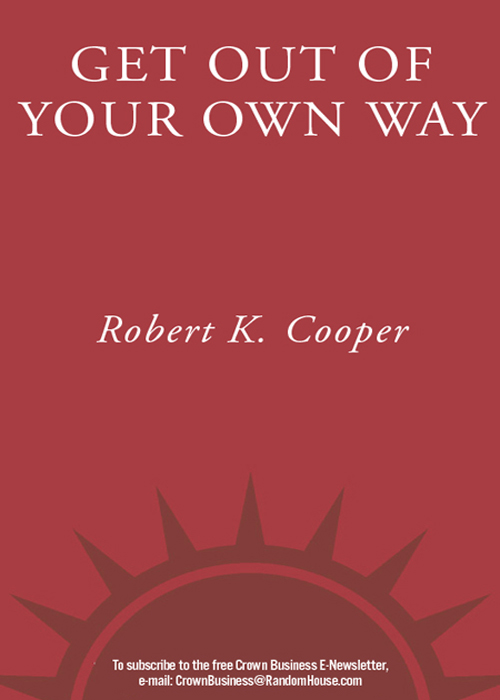
Contents
Its not how busy you are or how fast youre moving, its how effectively you are advancing in the right direction.
Its not how well you plan your time, its how effectively you put your attention on what matters most... in advance and as it unexpectedly appears.
Its not how good you are at copying others or making incremental improvements, its how bold you are at unlocking hidden potentialin yourself and othersand applying it in new ways.
Its not how hard you try or how long you work, its how effortlessly you get more of the right things done.
Its not how lofty your intentions are or how much you want things to improve, its how measurable a difference you are making in living your deepest values and achieving your biggest goals.
To all who realize that
the next frontier is not only ahead of us,
its also inside of us.
It is useless to close the gates against new ideas;
they overleap them.
CLEMENS WENZEL VON METTERNICH
What Does Your Brain Want,
Anyway?
Deep within us dwell slumbering powers; powers that would astonish us, that we never dreamed of possessing; forces that would revolutionize our lives if aroused and put into action.
ORISON MARDEN
What does your brain want, anyway?
If that question amounted to the same thing as asking what you want, life would be pretty simple: Youd decide what you want, and then youd use your brainpower to make that happen. Wed all be all the things we want to beaccomplished, influential, healthy, wealthy, wise, admired, happyin the kind of world we want to live in: peaceful, free, and just.
Singly and collectively, we have all the brainpower we need to make those things happen. But while you are a person of the twenty-first century, and what you want reflects your experiences in todays world, your brain is pretty much the same model your ancestors were using a thousand years ago, and it still wants a lot of what it wanted back then, which isnt necessarily good for you or congruent with what you want for yourself.1
You may want to change the world and, while youre at it, drop a few pounds and maybe learn Italian; your brain would be just as content to have you pass the time watching some mindless television show while you munch on a cheeseburger and some fries. You may want to love your neighbor as yourself, but your brain wants to know which one of those neighbors stole your hedge trimmer.
No matter that your hedge trimmer is in fact right there in that back corner where you put it the last time you organized your garage; your brain cant be bothered with remembering that. It would rather remember the name of that pigtailed girl who made fun of you in third grade, or maybe some obscure sports statistic, or something your boss said to you three months ago that might have been a compliment but, then again, might also have been some kind of subtle criticism.
And so it goes. You want this, but your brain wants that, and your brain often wins. As the comedian Emo Philips said, I used to think my brain was the most wonderful organ in my body, until I realized who was telling me that.
Incidentally, if your brain is right now trying to distract you from reading this by causing you to ask something like Is the brain really an organ? there are two answers to that. The first is, technically no, but that was just a joke, so lighten up, brain. The second is, as your brain well knows, you do have true brains within your organs, particularly in your heart and your gut. Scientists have proven that. These are not brains, in quotes, but real actual brains.
The gut brain, for example, includes more than a hundred million specialized nerve cells, a complex circuitry that enables it to act independently, learn, remember, and influence our perceptions and behaviors.2 And the heart brain consists of more than forty thousand neurons along with a complex network of neurotransmitters, proteins, and support cells. Its as large as many key areas of the brain in your head.3
As well see, theres a certain amount of competition among your brains for your attention, and that also creates some problems for reaching your goals. You could ask Michael Eisner, CEO of the Walt Disney Company, and his former friend Michael Ovitz, who was often described as the most powerful person in Hollywood,4 about that. Their failure to listen to what their heart-and-gut-brains were telling thempractically shouting at themcost them their friendship, cost Disney amazing millions of dollars, cost Ovitz his career, and played a part in Eisners early departure from Disney. Well get to that.
For now, Ill refer to all your brains, cumulatively, as your brain, singular. Because, frankly, it confuses your brain while youre reading to see the word in plural form when all your life youve seen it as singular. Your brain doesnt like change, even if, as in this case, the change is closer to the truth than whatever your brain is clinging to.
Even with all its frustrating qualities, its not that your brain doesnt want to be on your side. Of course it doeswhere else is it going to go? It just needs guidance. A little attention from you, at the right moments, can change a lot of its unproductive habits into positive attributes that will move you forward toward what you want, beyond what anyone thought you could accomplish, in remarkable ways and with remarkable ease.
Sometimes you have to tame parts of your brain that are holding you back today, even though they once preserved your ancient ancestors very lives by keeping them from trying anything new or stepping forward into challenging situations.
At other times, other parts of your brain will rush you toward doing something thats good for you or important to you, whether youre ready or not. You cant climb that big tree! someone says. Can, too! you answer. Yeah, well, lets see you do it then. And, scared half to death, you do, and your world changes. You cant sit here in the front of this bus, someone says to Rosa Parks. Can, too, she thinks. And she does. And the world begins to change.
A specific part of your brain, the nucleus accumbens located within the dorsal striatum, responds to challenge by flaring into action, charging your system with determination and ingenuity to help you do things others think you cant.5, 6
Of course, sometimes you get partway up the tree, fall, and break your arm. Sometimes, like Nelson Mandela, you get thrown in jail for twenty-seven years for believing your people should be free, or, like Albert Einstein and Abraham Lincoln, you fail at practically everything you try. Heeding the nucleus accumbens doesnt mean your life will be perfect or even easy; it just means that youll have more gumption to stay on the path toward being the best you.
This is a good place to raise three important points that apply to this book as a whole. First, when I name the nucleus accumbens as a specific part of your brain that goads you toward doing things that others think you cant, Im giving you my best read of the latest brain science. But brain science is growing explosively these days for many reasons, in part because its power to help improve lives is being demonstrated time and again, and in part because brain-imaging technologies are now permitting scientists to observe brain activity more and more minutely. So next week someone may discover that theres another area, even one within the nucleus accumbens, that actually provokes that reaction, or that the reaction results from several areas in combination, or from something else altogether. That wont change the fact that your brain has this resource within it; it will just change the name of the location where that resource is found.
Next page

